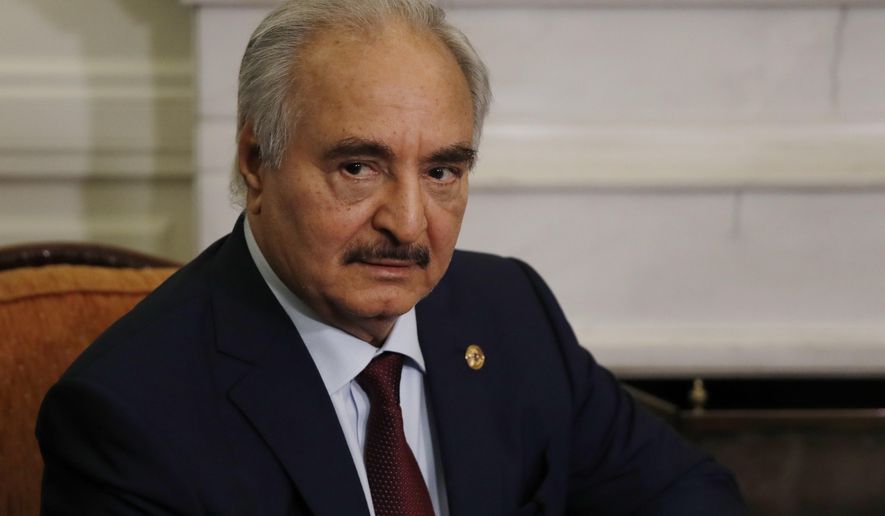CAIRO (AP) - Losses from the closures of Libya’s major oil fields and production facilities have continued to increase, surpassing $560 million for a 10-day period, the country’s national oil company said.
The closures came about when powerful tribal groups loyal to Libyan military commander Khalifa Hifter earlier this month seized several large export terminals along Libya’s eastern coast, as well as southern oil fields. Hifter’s forces, which control the eastern and much of the southern part of the country, launched an offensive in April to capture Libya’s capital, Tripoli, from the U.N.-supported but weak government based there.
Since the 2011 ouster and killing of dictator Moammar Gadhafi, Libya has sunk further into turmoil and is divided between rival governments based in its east and west, each supported by various armed militias and foreign backers. Hifter is loyal to the east-based administration.
In a statement late Wednesday, the National Oil Corporation, which dominates Libya’s critical oil industry, said the losses were recorded for the 10-day period ending Tuesday.
The NOC, which put the daily losses at nearly $60 million, posted on its Facebook page an appeal to “end the illegal closures and to allow the corporation to resume production immediately.”
The company on Jan. 18 declared a force majeure, which means it’s unable to fulfill international contracts due to sudden and disruptive events. The daily production has since then fallen from 1.2 million barrels a day to nearly 288,200 on Tuesday, according to the statement.
At the same time, the NOC offered assurances to residents in central and eastern Libya that there was still “sufficient” fuel in storage, though it warned that warehouses in the country’s western and southern provinces were running short.
Oil, the lifeline of Libya’s economy, has long been a key factor in the civil war, as rival authorities jostle for control of oil fields and state revenue. Libya has the ninth largest known oil reserves in the world and the biggest oil reserves in Africa.
The closure of the oil facilities was seen as part of Hifter’s efforts to capture Tripoli and punish his adversaries there for sealing security and maritime agreements with Turkey, opening doors for unlimited military support from Ankara. The shutdowns also come against the backdrop of a crumbling cease-fire mediated by world leaders in Berlin earlier this month.
U.N. envoy for Libya Ghassan Salame told the U.N. Security Council on Thursday “the economy in Libya is becoming increasingly unstable due to the conflict.” He said the fragmentation of institutions and inability of the rival governments to enact a unified economic policy “is exacerbating existing challenges and creating new ones.”
___
Associated Press writer Edith M. Lederer in New York contributed to this report.




Please read our comment policy before commenting.